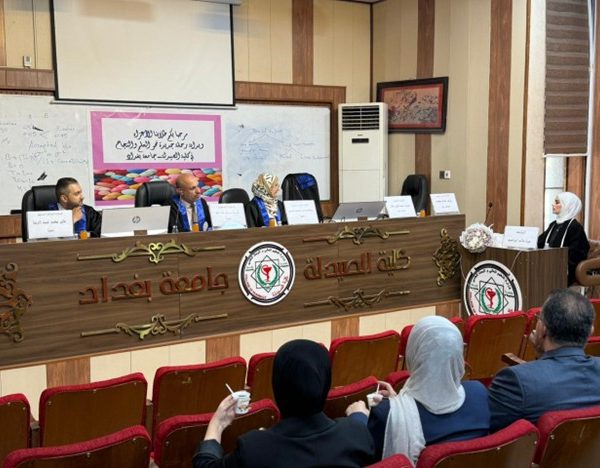The College of Pharmacy discussed the MSc thesis entitled “Assessing the Involvement of Patients with Parkinson’s Disease in their Health Management: A Mixed-Methods Study” by the student Mena Khalid Ibrahim and her supervisor, Assistant Professor Dr. Samer Emad Mohammed at the Clinical Pharmacy Department.
The study aimed to evaluate patient activation levels among Iraqi patients with Parkinson’s disease and to explore the demographic, clinical, and contextual factors influencing their engagement in disease management.
The study included three phases: Phase I involved semi-structured interviews with neurologists from different Iraqi provinces to explore the barriers and facilitators influencing patient participation in managing their disease. Phase II was a cross-sectional study that included 100 patients diagnosed with idiopathic Parkinson’s disease at various stages, using the PAM-13 scale to assess patient activation levels. Phase III consisted of qualitative interviews with patients diagnosed with Parkinson’s disease to explore their lived experiences and the factors affecting their engagement.
The results revealed that mean PAM-13 score was 47.16 ± 10.18, indicating generally low activation levels, with 57% of patients at Level 1 and 30% at Level 2. Younger age, higher educational attainment, and early disease stages were significantly associated with higher activation (p < 0.001). Both neurologist and patient interviews highlighted psychological, social, and economic challenges, along with feelings of helplessness and loss of control, whereas family support and educational awareness were identified as important enablers of greater engagement and participation.
The study recommended integrating pharmacist-led medication education with educational programs tailored to patients’ literacy levels, and adopting a multidisciplinary approach to enhance patient activation and improve the quality of care for individuals with Parkinson’s disease in Iraq.







